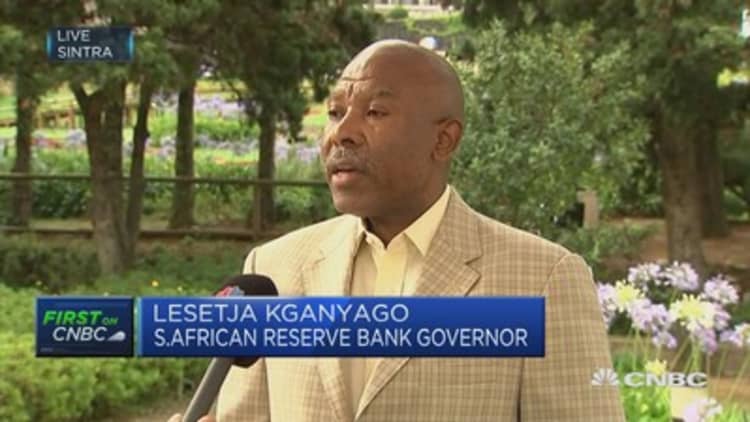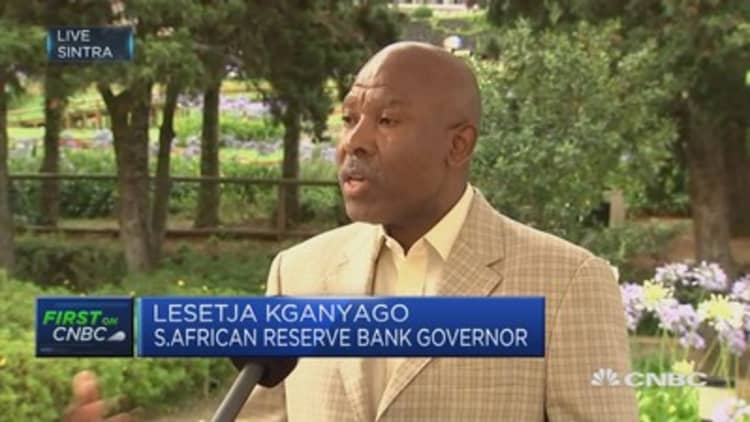
The governor of South Africa's central bank has said that the challenges facing his country's ailing economy are now "fundamentally domestic" and will not be impacted by the tightening of monetary policy by the U.S. Federal Reserve or other advanced countries.
Lesetja Kganyago told CNBC Wednesday that emerging economies, including South Africa, had formerly been heavily impacted by the quantitative easing programs of major central banks, particularly during the 2013 taper tantrum when South Africa was hit with a major outflow of capital. However, with some major economies now showing signs of growth while South Africa's remains in technical recession, he insisted that this co-dependence has no diverged.
"The extent of the (South Africa's) slowdown is quite significant," Kganyago admitted.
"What is disconcerting is that this takes place in South Africa at the time when the world economy is recovering faster than we had said, which then says that the reason why South Africa has the growth problems, it does, no longer has to do with the world economy.

"That tells you that the problems are fundamentally domestic."
Kganyago insisted, however, that the domestic nature of the economy's woes would enable the South Africa Reserve Bank to work alongside businesses to ensure that spending and investment returns to pre-recession levels.
"That is surely the cheapest stimulus there is among us: restore business and consumer confidence and then you will have the economy going again," he continued.
His comments come as the South African government tries to allay concerns about the stability of its leadership. In March, President Jacob Zuma ousted the widely popular finance minister Pravin Gordhan, replacing him with Malusi Gigaba and raising new questions about the direction of the country's economic reforms program.
"I don't think you can reduce it to just one ministry or one institution. South Africa is actually very good at that: bringing a cross-section of society to deal with the challenges that we face," Kganyago said.
"We have started a process where we have to talk with the CEOs of the major companies in a dialogue with government and trade unions to say how do we get this confidence going again? How to we get investment going once again?"



